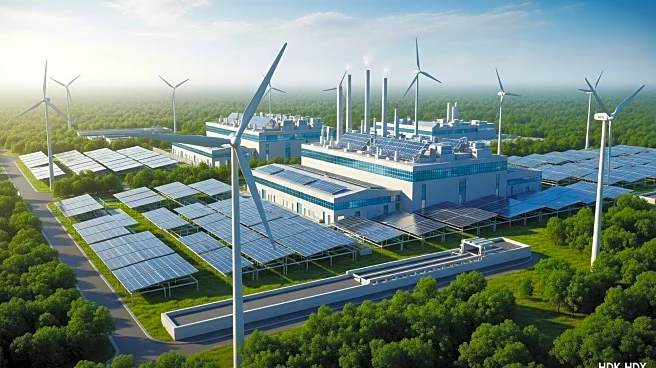What's Happening?
The manufacturing sector is increasingly adopting net-zero emissions strategies, driven by innovative funding and incentives. Government grants, private investments, and new funding models are reshaping the industry landscape, encouraging manufacturers to reduce their carbon footprints. Programs like the Renewable Energy Production Tax Credit and Investment Tax Credit are supporting investments in renewable technologies. Private sector investments are also driving innovation, with venture capital and private equity firms targeting sustainable manufacturing solutions.
Why It's Important?
Achieving net-zero emissions in manufacturing is crucial for combating climate change and enhancing resource efficiency. Consumers are increasingly favoring sustainable brands, and manufacturers are expected to lead in responsible practices. Implementing net-zero strategies not only aids compliance with regulations but also attracts investments and improves long-term profitability. The shift towards sustainable manufacturing is influencing industrial practices, the broader economy, and the environment.
What's Next?
Manufacturers face challenges such as high upfront costs and regulatory uncertainty in adopting sustainable practices. However, technology plays a pivotal role in transforming operations, with IoT, AI, and automation enhancing resource efficiency and minimizing waste. Embracing these technologies equips manufacturers with the tools needed to achieve sustainability goals and maintain a competitive edge in the market.
Beyond the Headlines
The transition to net-zero emissions in manufacturing represents a broader shift towards sustainable industrial practices. It highlights the importance of integrating renewable energy and recycling into production processes. The move towards net-zero emissions is not only about reducing environmental impact but also about enhancing operational efficiency and competitiveness in a carbon-constrained global economy.










